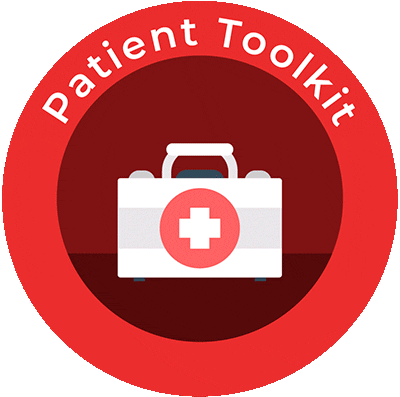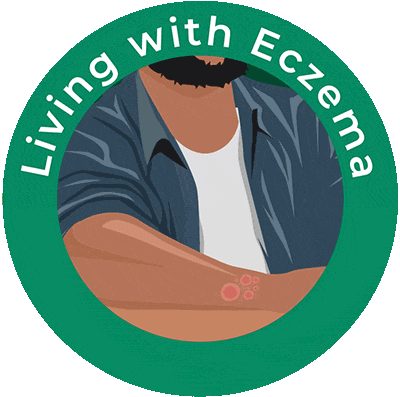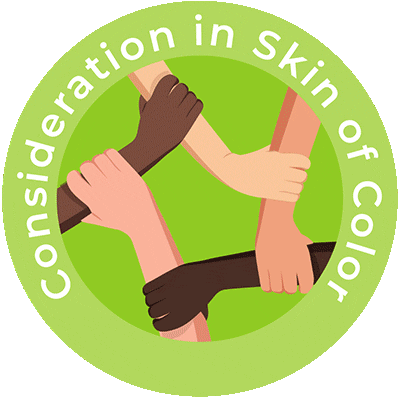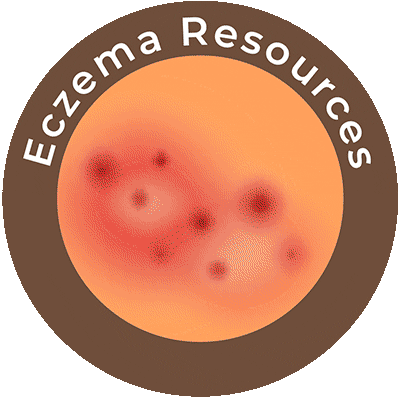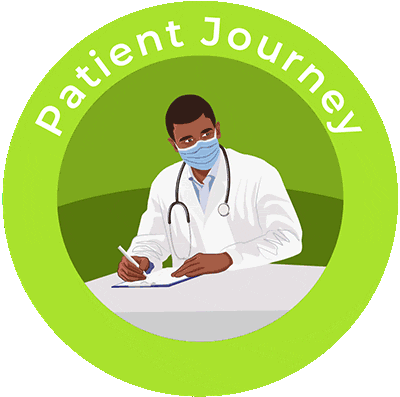Living With Eczema
Studies have found that patients who have eczema—also called atopic dermatitis, or AD—often report a decreased overall sense of well-being, known as quality of life, which is experienced to an even greater degree with moderate-to-severe disease.1,2 Besides appropriate treatment, understand ways improve daily living with eczema are essential to a comprehensive management approach.
Certain allergens found in the environment, such as dust and mold, can increase the risk of developing eczema.3 In the urban environment, additional allergens including pollution, household pests (for example, cockroaches and dust mites), tobacco smoke, and excessive heat may also trigger eczema.4 Maintaining skin moisture through proper skin care, such as applying unscented creams or lotions immediately after bathing, is important in helping prevent irritants and allergens from entering the skin.1,3 Simply improving skin hydration may help reduce the need for and use of topical corticosteroids to control eczema symptoms.1
Available treatments for eczema
Approaches to optimal management include additional personalized treatment options based on eczema severity. However, a mainstay of treatment for anyone affected by eczema includes gentle skin care, such as bathing or showering in warm (not hot) water, limiting bathing time to less than 10 minutes, and frequent use of moisturizers.3
If prescription intervention for mild-to-moderate flares is needed, topical corticosteroids (TCS) are typically used first at the affected area for a short duration.1,3 Additional non-steroidal options can include topical calcineurin inhibitors (TCIs) and phosphodiesterase-4 (PDE4) inhibitors.1
Moderate-to-severe eczema may require treatments with phototherapy (light-based treatments) or possibly medications that affect the whole body, which are taken in pill or injectable form.1,3 These types of medications are called immunomodulators, each of which targets different areas of the body’s immune system to help treat AD more aggressively.1,3 Of these treatments, dupilumab is the only biologic medication currently approved to treat poorly controlled moderate-to-severe eczema.1
Lifestyle approaches to managing eczema
With new ways of identifying eczema and evolving medications to treat it, patients now have additional methods to help manage their eczema. However, eczema also affects a patient’s lifestyle since it is such a visible problem that may affect the arms, neck, legs, head, and other areas of the body. There is a strong social element to having eczema and getting it under control.
One of the biggest challenges with eczema is managing your day-to-day life outside of the doctor’s office. How can patients learn to help themselves lead their most fulfilling life with the lowest disease burden?
- Options for facing your eczema symptoms include:5,6
- Knowing your triggers so you can be better prepared to defuse them
- Getting regular exercise
- Trying new things, such as yoga, meditation, or jogging
- Finding time for yourself every day
- Trying oils, such as coconut oil or sunflower oil
- Putting a regular skin-care routine in place—finding what works for you
- Downloading apps for meditation, relaxation, and eczema information
- Doing something creative—such as drawing, coloring, and reading—to take your mind off your eczema
Open communication is also very important. Ask your clinician as many questions as you can. Bring a family member or friend to doctor visits so that your support person can also be informed. Request as much follow-up as you need to get your questions answered. Remember, your caregivers are there because they want to help you. Working together with them is one of the most important aspects of your care!
References
- Sangha AM. Dermatological conditions in SKIN OF COLOR-: managing atopic dermatitis. J Clin Aesthet Dermatol. 2021;14(3 suppl 1):S20-S22. Available at: www.ncbi.nlm.nih.gov/pmc/articles/PMC8211323/pdf/jcad_14_3_s1_s20.pdf
- Free dictionary by Farlex. Quality of life. 2012. Available at: https://medical-dictionary.thefreedictionary.com/quality+of+life
- Kaufman B, Alexis A. Eczema in skin of color: What you need to know. Available at: https://nationaleczema.org/eczema-in-skin-of-color/
- American College of Allergy, Asthma & Immunology (ACAAI) and the Asthma & Allergy Network (AAN). Eczema in skin of color: social and economic factors. Available at: https://eczemainskinofcolor.org/social-and-economic-factors/
- Crane MW. Living well with eczema (and all the ways to do it). Available at: https://nationaleczema.org/how-to-live-well-eczema/
- National Eczema Society. Living with eczema. 2020. Available at: https://eczema.org/wp-content/uploads/Living-with-Eczema-Info-for-adults-booklet-2020-2.pdf

